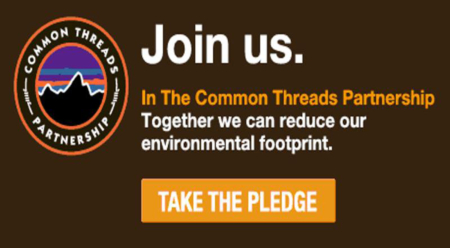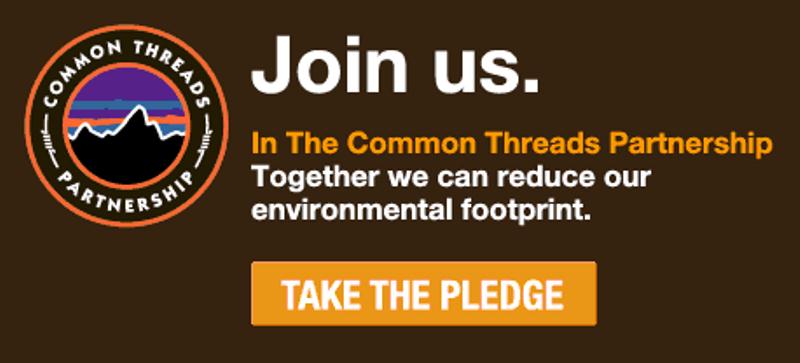Solutions Series, Part 3: Dive In
A few months ago, we started a conversation about solutions with the Patagonia community. We identified three areas where solutions are needed most: our communities, our businesses, and our governments. Last time we talked about solutions in our communities – the closest place to home. This time, we’ll offer some contacts for rolling up your sleeves and diving in.
The only bright side about our current system being so messed up is that there are any number of ways to dive in and make things better – so many options, in fact, it can be hard to decide where to begin. My advice? Follow your passion. If gardening excites you, form a group to reclaim vacant lots for community gardens. Is education your thing? Volunteer to help local schools green their operations and engage the kids in activities like stream cleanups. Love biking? Recruit some fellow cyclists and work for bike lanes in your town. It doesn’t matter so much where you plug in, as long as you’re sharing your skills and passion with others in your community.
The beauty of community-based solutions is that you can start today. Grab a friend and get going. There’s no need to be part of a national or international network to get started making change in your community. On the other hand, networks can be a great source of inspiration, advice, and lessons learned. Here are some of my favorite networks working on solutions at the community level.
Transition Towns. The Transition Town network started in 2006 in Totnes, a small town in southwestern England. The network has since grown to include over 1,000 Transition Towns in more than 40 countries. In these communities, people are working together to figure out how to reduce carbon emissions and build happier, stronger, more resilient communities. Transition groups meet regularly and discuss plans for everything from zoning to encouraging local food production. It’s a great way to get to know your neighbors and start your community on a path towards sustainability. The Transition Towns Network has published a primer with advice for getting started. Check here to see if there is already a Transition group in your community. If not, download the guide and get started.
Zero Waste Communities. If you’re like me – eager to take waste reduction efforts beyond our kitchens and into our communities – working for a Zero Waste goal in your community is a great place to start. You’ll be in good company, as dozens of communities all over the world are adopting Zero Waste policies. Reducing a community’s waste to zero is a long haul, but setting an official goal helps ensure that steps along the way move in that direction. Many cities around the world have made serious progress, some reducing household waste by more than 80 percent. For tips on getting started, check out the Grassroots Recycling Network or GAIA: the Global Alliance for Incinerator Alternatives.
Sharing. Sharing is having such a renaissance that it even has a new name: collaborative consumption. It’s one of my favorite solutions because it does two things we desperately need: It helps us use less stuff and it builds community. By sharing, we can increase the efficiency of materials used – for when 10 families share a power drill, there’s no need for each to buy their own. And to share we have to talk, to know each other, and to build trust, the secret sauce of thriving communities. Sharing can be as simple as weekend swap meets for kids’ clothing or camping gear, or more sophisticated, like the online platform Yerdle.com. Check out Shareable.net for inspiration and advice to ramp up sharing in your community. Less stuff, more fun!
And don’t forget to check out our latest film, The Story of Solutions.
[Video: The Story of Solutions by storyofstuffproject.]
There are literally thousands of organizations promoting a multitude of community-based solutions. We’d like to hear from you. What solutions are you working on in your community? What resources were most helpful for you?


